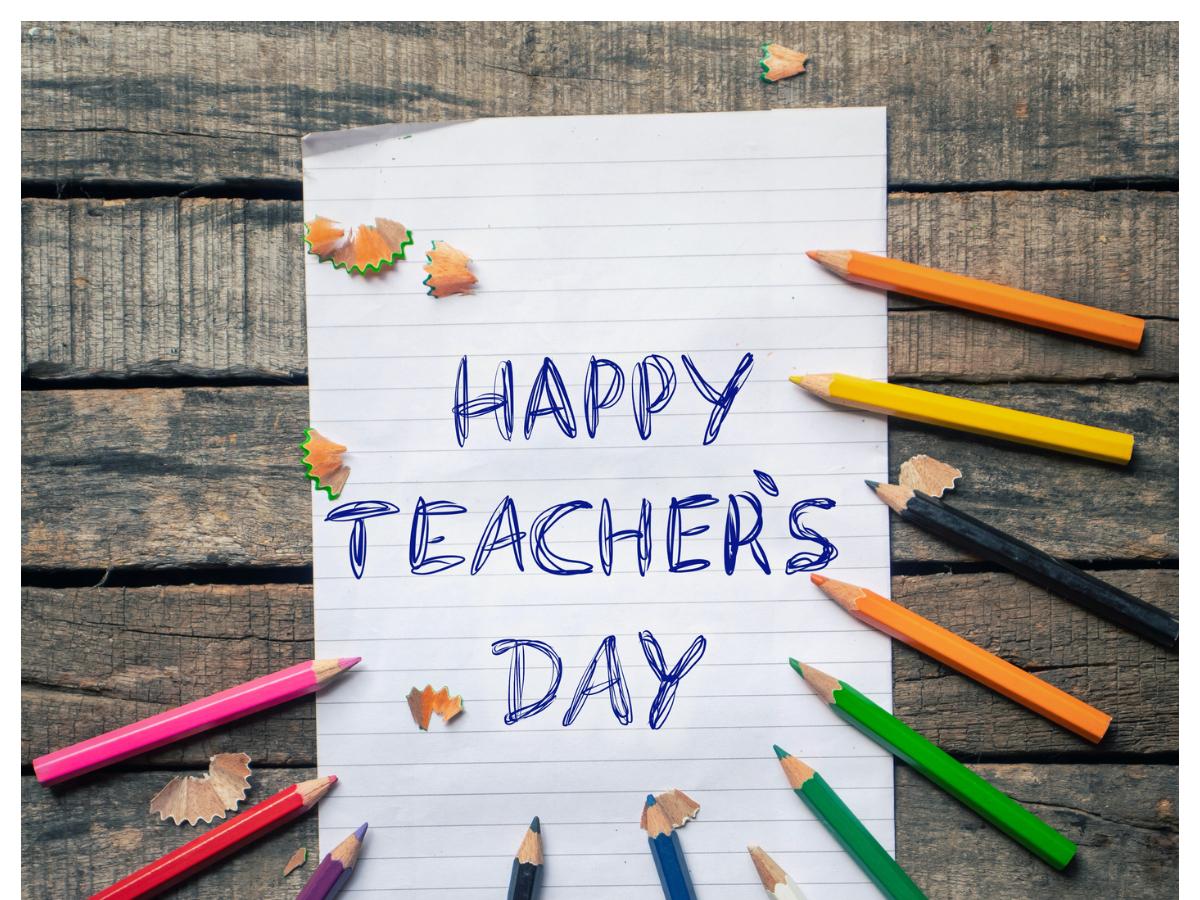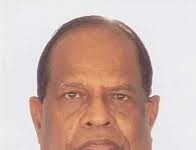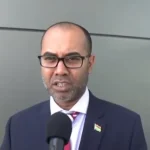On Teachers’ Day
At the International Conference on Education in Geneva in 1994, UNESCO has declared 5th October as World Teachers’ Day. There are presently, approximately 50 million teachers worldwide. World Teachers’ Day was proclaimed to keep alive the recognition of their contribution to society and without their full co-operation, there can be no sustained development, social cohesion or peace.
The teaching profession is an honorable one as it undertakes an eternal mission of building and moulding the welfare of a nation. It is a serious mistake when someone thinks of teaching merely as an official task – actually an insult to teachers, when someone adopts this short-sighted viewpoint that belittles the teaching profession and thus discouraging the younger generation to join the teaching career.
It is with great joy and happiness that we, as teachers, note that young fellow teachers, with a sincere and warm heart, in spite of great concern and grief for the conditions of work, are not too disappointed or frustrated but rather entertain a sincere ambition and unyielding spirit that aspires to accept changes and reforms. Schools are adorned with devoted young pupils who are competing for the highest position and surpassing their mates. All these are the result of the efforts put in by other fellow teachers. With these commendable, munificent efforts, however, there is a certain group of good teachers that stands out. The faith of these teachers has no blemish, and their efforts are by no means questionable. We focus on the great duties of our honourable position and the responsibility we are shouldering. Ageing men and helpless women have set their hopes on us; they hope we will save and protect their children and guide them throughout the uncertainty of the future.
Dedicated reformers consider us as one of the greatest hope for the salvation of society and the moulders of the future. The masses of the nation are looking for a saviour to save them and their children, and we, teachers, undoubtedly do form part of the hope of the whole nation.
Being forgetful by nature, man is inclined towards injustice and ignorance. His most important gift is his natural inclination towards knowledge, which pertains to tangible as well as intangible realities. Hence, his knowledge should guide him towards a high ultimate destiny, which is determined by how he conducts himself in society.
Man needs training from his childhood both at home and in the society in which he lives. This educational training should encompass his total personality, his intellect and rational self, imagination and bodily senses and should not be one part at the expense of the other.
But, why is the behaviour towards each other we see display so little of courtesy, good manners and high moral value? Indeed, because our education system is devoid of all moral training. In education, most of the discussion goes around Literacy and Numeracy statistics and the need to have so many graduates, masters, PhD’s, and so many professionals, engineers, doctors, etc., in the country based on the standards in the industrially advanced countries. The central issue of curriculum, and even the more fundamental issue of the purpose of education, normally do not attract their attention, they have already been decided by the “advanced” countries for them and their job is only to follow in their footsteps to achieve their level of progress.
Education has become an extension of the capitalist system. Its purpose is to provide a qualified workforce for its machinery of production and eager consumers for its products. Stated in a more polished form, the purpose of education is today, to provide for the economic prosperity of a country. Similarly on a personal level today, the purpose of education is to be able to earn a respectable living.
While earning a living and providing for the economic well-being of a country are certainly important goals as well, the linking of education to only financial goals is extremely unfortunate. It turns the centres of learning into mere vocational centres in their outlook and spirit. Locally, the subsequent Ministers of Education have each through their proposed reforms contributed to move in this same direction.
There is a fundamental difference between human beings and animals. Instincts and physical needs alone can bring ants, bees or herds of beasts together to live in a perfectly functioning animal society. Human beings do not function that way. They are not constrained by nature to follow only those ways, which are necessary for the harmonious operation of their society. Without a common framework binding its members, a human society cannot continue to exist; it will disintegrate and be absorbed by other societies. Further, the society must ensure that the common ground will continue to hold from generation to generation. This is the real purpose of education.
The education system of a society produces the citizens and leaders needed for the smooth operation of that society, now and into the future. Unfortunately, today we find many internal problems like corruption, violence, injustice, oppression, drug addiction, sexual abuse, fornication, adultery, pedophilia, incest and crippling poverty to name a few. If we think about it, we may realise that most of these problems are man-made, which is another way of saying that they are largely traceable, directly or indirectly, to the education system that produced the people who perpetuate these problems. The rulers who subjugate their people, the bureaucrats who enforce laws based on injustice, the politicians who utilize their own people, the businessmen who exploit and cheat, the journalists who lie, sensationalise, and promote indecencies, they are all educated people, in many cases “highly” educated people. Lately, we have witnessed many of the ‘so-called’ educated professionals who are involved in different scams, starting from the Bank Managers, to the Attorney at Laws, from the Barristers to the Ministers, from the successful Businessmen to the High Rank Policemen. Their education was meant to prepare them for higher motives and better roles in real life. And see what ‘education’ has done! The problem plagues all layers of society. Why is our society in the grip of so much materialism today? What should we expect when our entire education system is preaching the gospel of materialism? Why have we effectively relegated moral values to a small inconsequential quarter in our public life? That is precisely where our education system has put it. Why our societies are sick? Clearly, because, our education system is sick.
This is the real crisis of education. Before we got into this mess by importing into the educational system of what was current and popular from other countries, education in our societies was always the means of nurturing the human being. Moral training was always an inalienable part of it. The teacher (Guru or Ustad), was not just a teacher, a lecturer or a mere professional, but a mentor and a moral guide.
In the United States and Europe, schools were started by the church. Later, as forces of capitalism overtook them, they moulded them into their image. Moral training was a casualty of that takeover. But capitalism and their political economy did need people trained to work under these systems. So citizenship training was retained as an important, though diminishing, component of the curriculum – a religion-free subset of the moral training it displaced. Whatever civility we see here is largely a result of that leftover component.
We can solve our problem once we realise our mistakes. Education is based on the four dimensions of a person, viz. the mind, the body, the heart and the spirit. The first purpose of our education system must be to produce qualified citizens and leaders for our society, real moral training must be an integral part of it. This must be the soul of our education, not a ceremonial husk. All plans for improving our education will be totally useless unless they are based on a full understanding of this key fact. This requires revamping our curricula, rewriting our textbooks, and realising that we must do all this ourselves. We do have a rich history of doing it.
Bashir Nuckchady




![[Message de l’Eid-Ul-Fitr 2024] Atteindre la piété… Et après ???](https://sundaytimesmauritius.com/wp-content/uploads/2023/10/Bashir-new-218x150.jpg)


![[Democracy Watch Mauritius] The Rwanda genocide started 7th April 1994, 30 years ago. Has humankind learnt the lesson? Consider Israel’s action in GAZA today!](https://sundaytimesmauritius.com/wp-content/uploads/2024/03/democracy_0-218x150.jpg)







